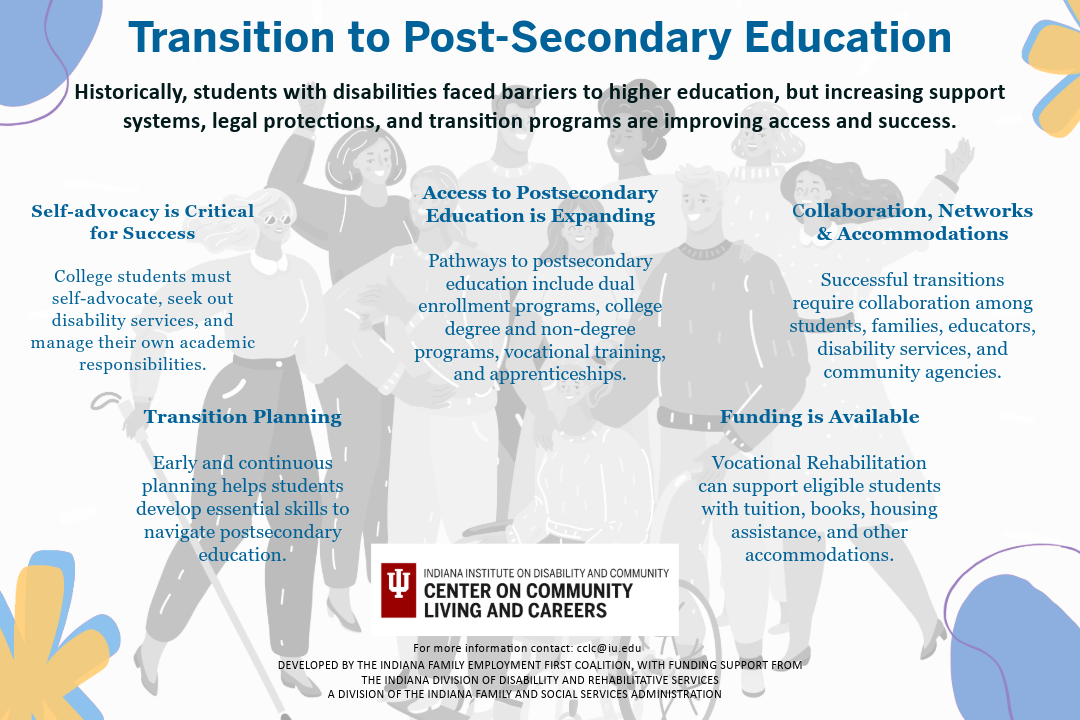Because there are many differences between high school and postsecondary institutions, planning ahead will make the transition much smoother. Under the Americans with Disabilities Act (ADA) colleges must provide reasonable accommodations to students with disabilities. However, colleges are not required to provide the same disability services outlined in your Individualized Education Program (IEP). It is likely that you will need to provide medical documentation to the college prior to accommodation approval. Here are some things to think about, talk through, and plan for with a team of trusted individuals.
Planning & Preparation for Postsecondary Education
- Ensure the current Individualized Transition Plan (ITP) outlines the needs, goals, accommodations, and support services required for post-secondary success.
- Practice advocating for yourself by communicating academic needs and accommodations.
- Focus academic skill development on foundational skills in reading, writing, math, and critical thinking.
- Address and practice executive functioning skills such as time management, organization, planning, and self-regulation skills crucial for navigating college demands.
- Gain exposure to college expectations by arranging college campus visits and interviews. Meet with the disability services offices to learn more about their policies and procedures.
- Explore assistive technology like text-to-speech software, screen readers, note-taking apps, and other tools that can support learning.
Explore all areas of interest in education and training opportunities prior to making a decision. Be sure to connect with your Individualized Education Plan team to share your progress and experiences. They can help you navigate any obstacles along the way.
Be sure to check out the resources below when planning your next steps towards employment.


